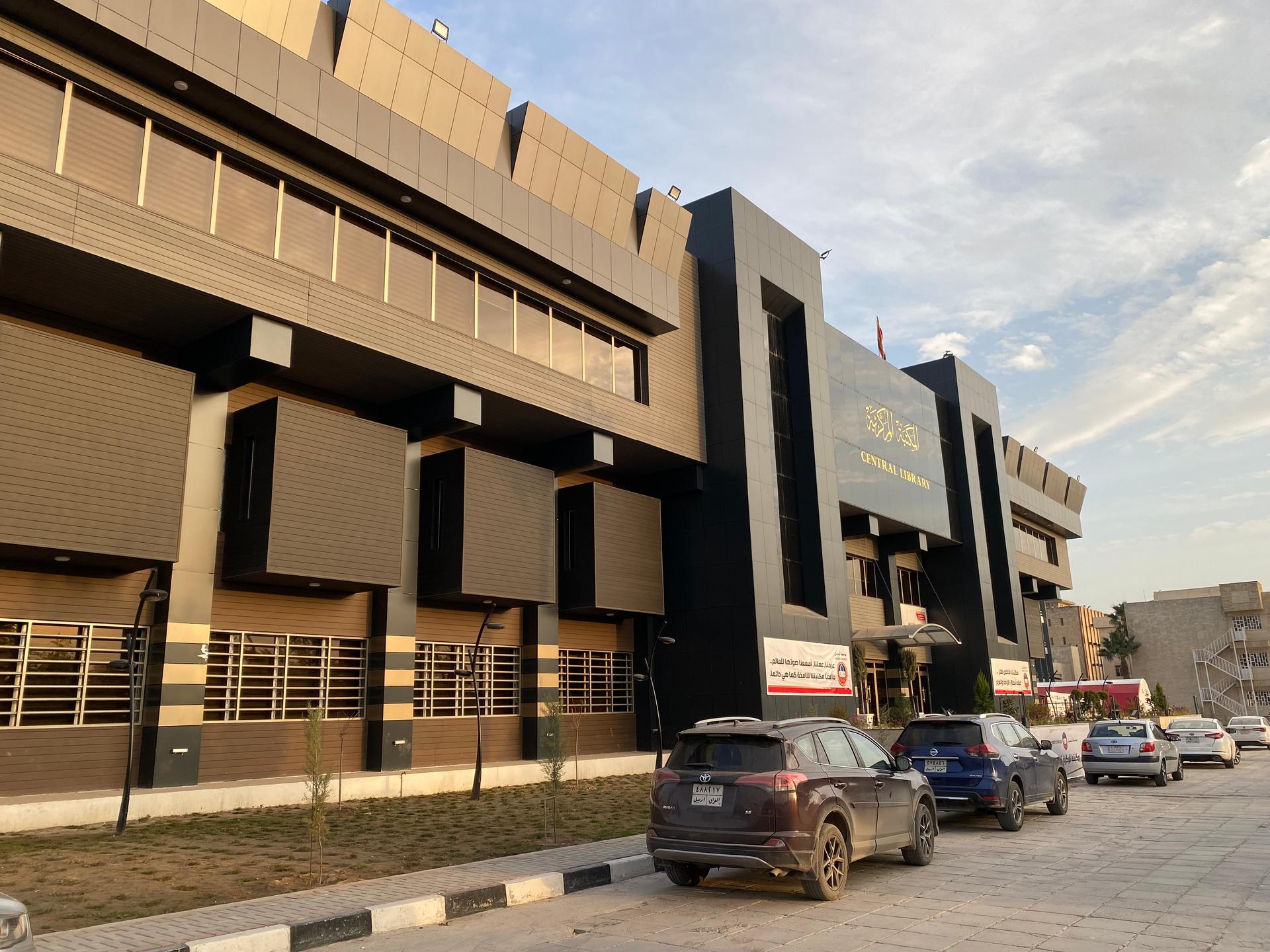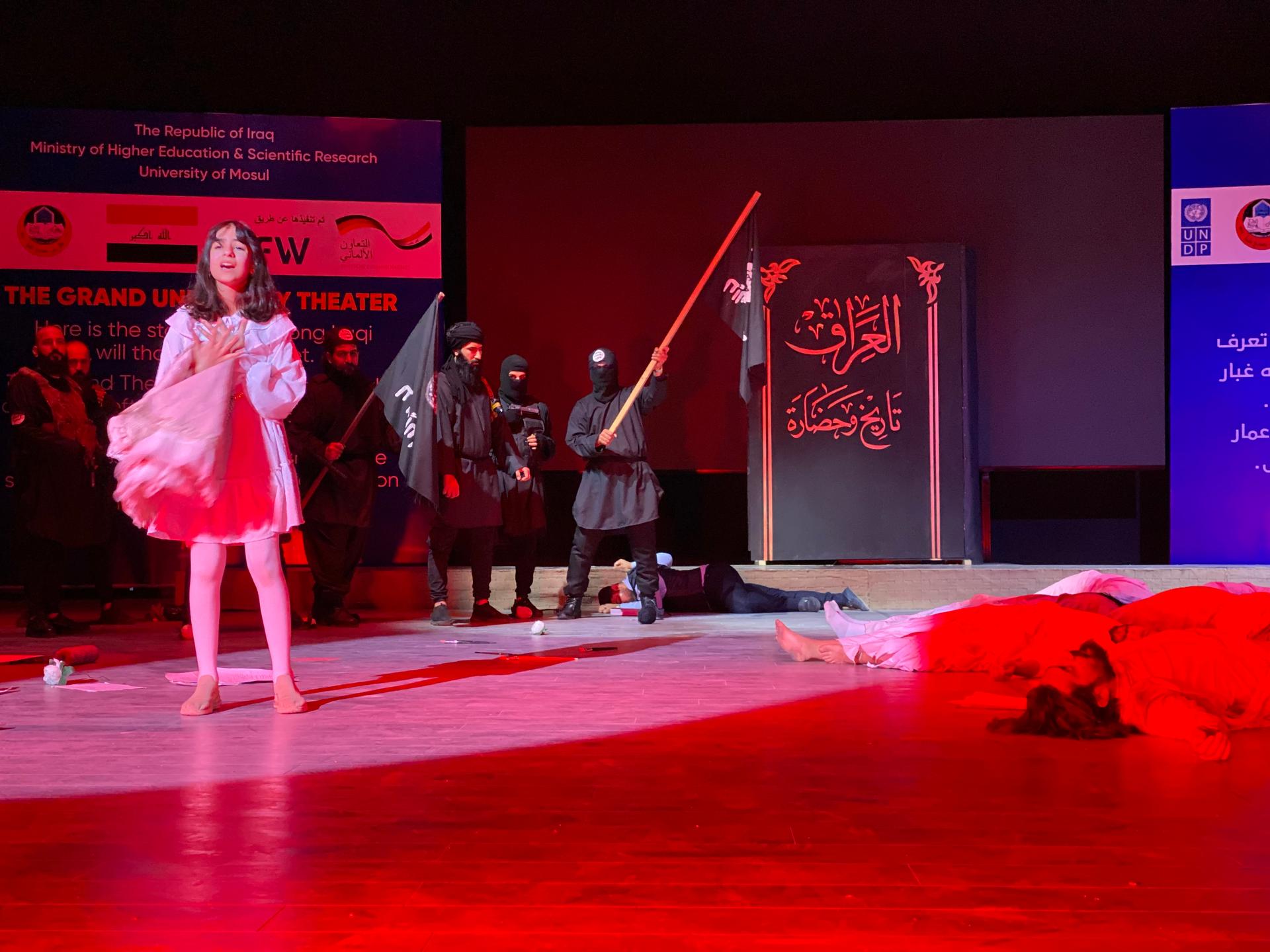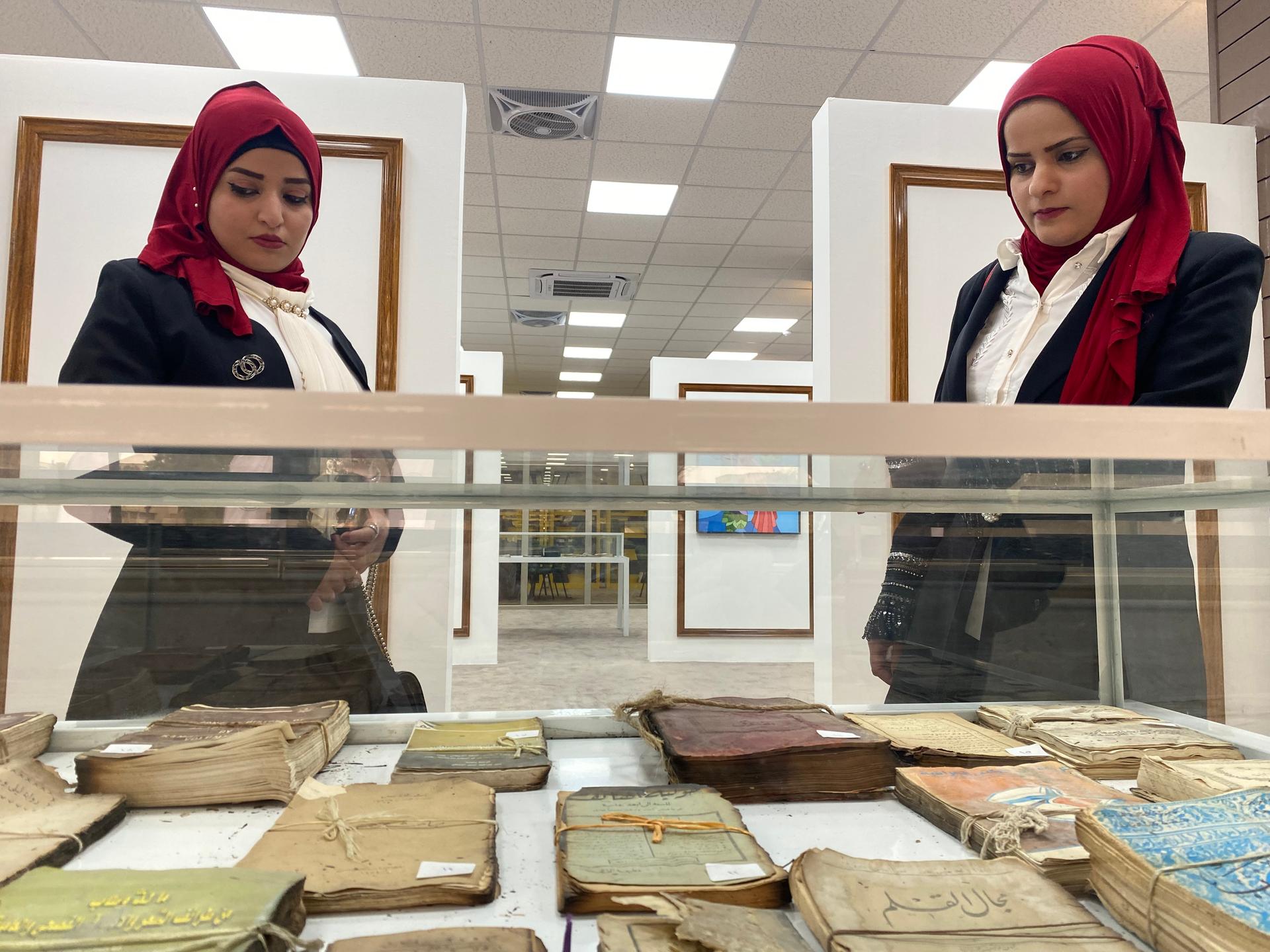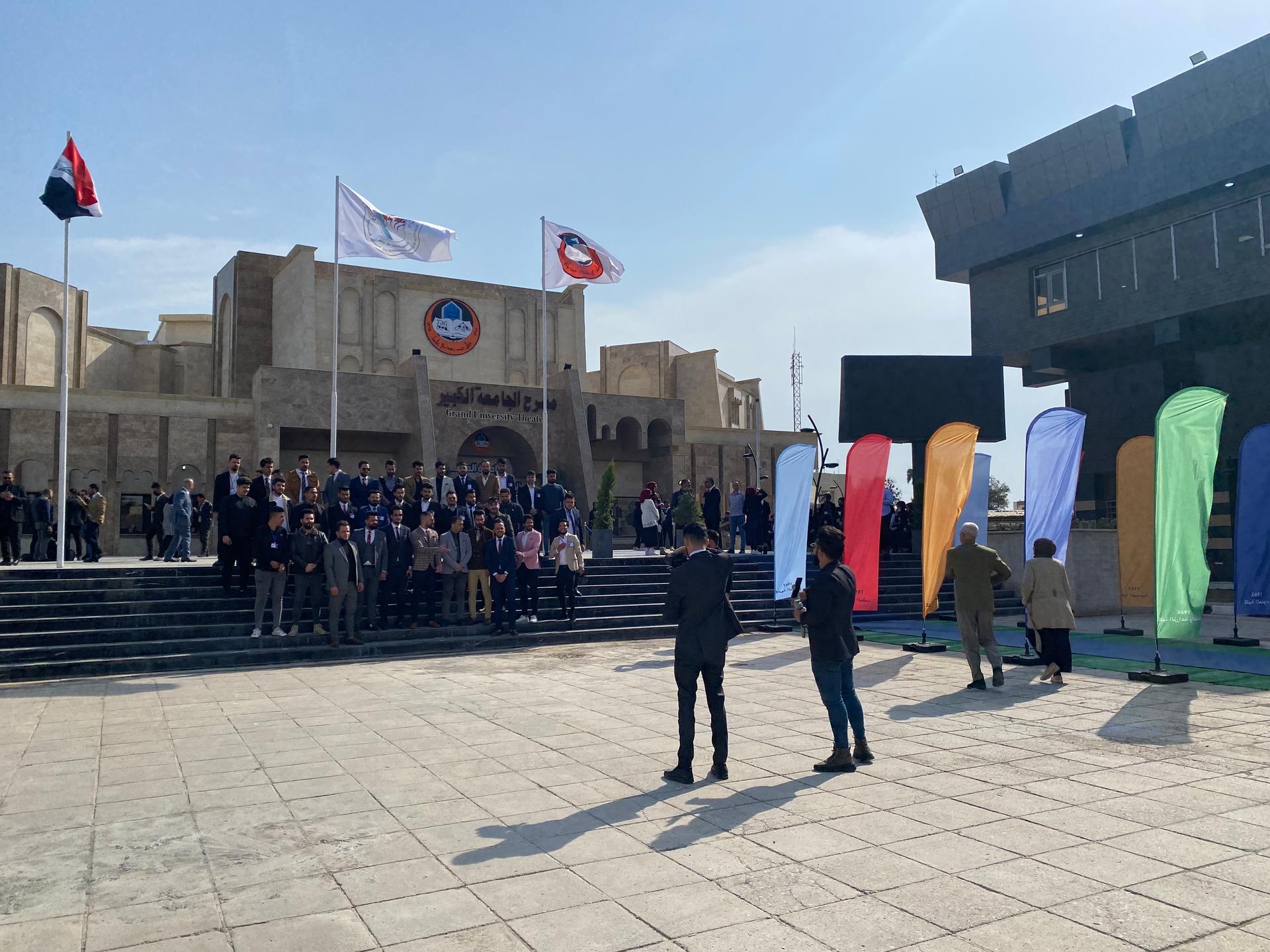A soot-stained wall encased in glass remains in the entrance to Mosul University’s newly reopened Central Library in northern Iraq.
It is the last reminder that this building, which once contained one of the finest book collections in the Middle East, was destroyed five years ago by ISIS.
Related: Iraqi mothers risk it all to bring justice for their slain activist sons
The library, which was opened in 1967, is said to have once held a million books. The collection included countless texts on science, philosophy and law as well as ancient texts including a ninth-century Quran.
The library’s reopening on Feb. 19 represents a significant milestone in the return of arts and literature to a city whose culture became a target of ISIS militants.
“The happiness we are feeling is indescribable.”
“The happiness we are feeling is indescribable,” said Yunus Ali of the library’s restoration.

The 32-year-old, a local schoolteacher, was one of the volunteers who flocked to the library in 2017 after it was retaken by Iraqi forces.
By then, the attacks had mostly tapered off, but some militants remained in the area for weeks.
“We came here while the mortars were still falling on us. The liberation operation on the west side [of the city] was still ongoing,” Ali said.
ISIS militants took the northern city of Mosul in June 2014. They sought to purge society of everything that didn’t conform to their violent interpretation of Islam, including many of the books in the Mosul library.
ISIS also destroyed many archaeological relics — deeming them pagan — and Islamic sites considered idolatrous.
Several years later, when the battle to retake the city by Iraqi forces reached the University of Mosul, the library was hit by several missiles from the US-led coalition. Most of the library’s remaining books were then torched by ISIS.
Ali said that he and other volunteers didn’t expect to find any books at the library. The building was just a shell.
Related: ‘Strangers in their own land’: Iraqi Yazidis and their plight, 7 years on from genocide
But they pilfered through the rubble and collapsed shelves and managed to save about 30,000 volumes.
“It’s true that we struggled and suffered a lot during the ISIS occupation and the operation to liberate the city,” Ali said, adding, “But today, the reopening of the library makes us forget our exhaustion.”

Mosul, which was the biggest city in ISIS’ self-declared caliphate, boasts a relatively educated, diverse population that has actively fought to preserve its heritage sites and libraries. In the chaos that followed the US-led invasion of 2003 that toppled Saddam Hussein, residents nearby hid some of the city’s centuries-old manuscripts in their own homes to prevent theft or destruction by looters.
Now, with German funding and help from a United Nations Development Program team, the building has been fully restored and ready to serve the university’s 50,000 students. In addition to the saved books, new books were bought, donated and gathered from nongovernmental organizations, the university and private individuals across the world.
Related: ‘I had no life left here’: Iraqi Kurds are at the center of the migration crisis in Europe
The two-story library, alongside the university’s student center and recently reopened theater, can seat over 1,000 students and has the capacity for over 100,000 books, plus dedicated spaces for studying, meetings, computers and exhibitions, a UN report says.
The reopening was a profound moment for students like Ghufran Abdelmalek, who hopes to work on her senior thesis at the library.
“Daesh [ISIS], as you know, destroyed everything here. They stole all the books — all we have.”
“Daesh [ISIS], as you know, destroyed everything here. They stole all the books — all we have,” the 24-year-old Abdelmalek said.
Abdelmalek, now an English literature student at the university, said her education was put on hold when ISIS took over the city.

Girls and women were largely confined to the home, in line with ISIS’ extremist interpretation of Islamic gender roles. Girls under 15 were technically allowed to attend school, but many parents chose not to send their children to schools that enforced a religious and militarized curriculum.
Related: Drone attack on Iraq’s prime minister raises concerns of more violence
Abdelmalek said she would read and write in her diary to pass the time and cope with her stress during the war.
“I wrote, ‘If you read this, I might be dead,’ in my last diary entry from the war,” Abdelmalek said.
She lives in western Mosul, where a fierce battle to retake the city from the militants came at great human and material cost.
Abdelmalek said that the war still haunts her but she has found solace in poetry from other cultures about conflict.
As she walked through the library with her sister, peering at the shelves, she stopped in the international collection to read a translation of a Chinese poem, and welled up with emotion.
The Associated Press contributed to this report. Sylvia Maria Gross edited the broadcast version of this story.
